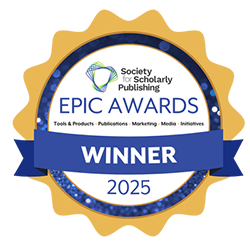Assessing the Early Impact of ST-OPEN (2020–2025): Simulated Impact Factors and Bibliometric Indicators Across Google Scholar, Scopus, and Web of Science
DOI:
https://doi.org/10.48188/so.6.14Keywords:
ST-OPEN, bibliometric indicators, simulated Impact Factor, diamond open access, Croatian scientific journalsAbstract
Aim: ST-OPEN is a multidisciplinary, overlay diamond open access journal established by the University of Split in 2020. As a new journal, it is not yet included in major databases and thus has no official bibliometric indicators. The aim of this study was to evaluate the early citation trajectory of ST-OPEN and to calculate simulated citation metrics to assess its visibility and scholarly impact.
Methods: Citation data for all articles published between 2020 and 2025 were collected manually from Google Scholar, Scopus, and Web of Science Core Collection. The simulated Impact Factor (IF) was calculated using the standard Clarivate formula, while the h-index, and g-index were derived from cumulative citations. Self-citations were estimated based on overlapping authorship in citing and cited papers. Citation frequencies and distributions were cross-checked across sources to ensure accuracy.
Results: Between 2020 and 2024, ST-OPEN published 75 papers, which had received 95 citations in Google Scholar by 2025 (average 1.27 citations per paper). The journal’s h-index and g-index were both 5. Approximately 20% of citations represented self-citations. Simulated IF values peaked in 2022 (0.261). Scopus-indexed journals cited ST-OPEN 49 times between 2021 and August 2025, while Web of Science recorded 42 citations between 2020 and 2024.
Conclusions: The early citation indicators of ST-OPEN remain modest and volatile, consistent with patterns observed for new, small, multidisciplinary, and university-based open access journals. Despite the absence of indexing in JCR or Scopus Source, the journal is already cited in international outlets, suggesting initial visibility and potential for growth. Continued editorial development, international collaboration, and eventual indexing in global databases are likely to strengthen its bibliometric performance in the coming years.
Downloads
Published
Issue
Section
License
Copyright (c) 2025 Željana Bašić, Danijel Gudelj, Ana Marušić

This work is licensed under a Creative Commons Attribution 4.0 International License.
Authors retain copyright and grant the journal right of first publication with the work simultaneously licensed under a Creative Commons Attribution (CC-BY) 4.0 License that allows others to share the work with an acknowledgment of the work’s authorship and initial publication in this journal.







